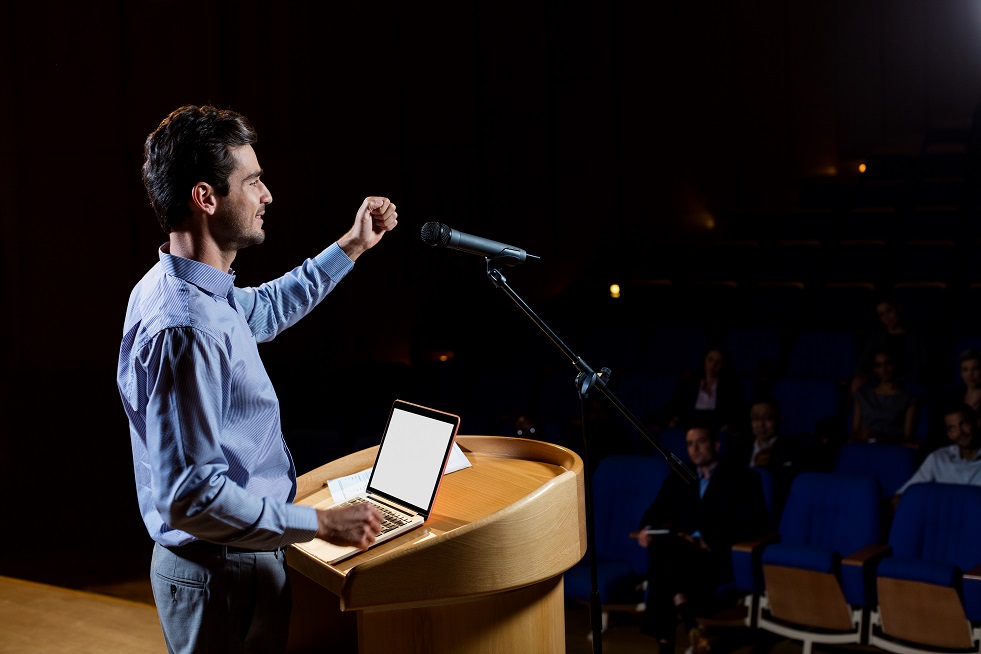How to get the most out of conferences?
Academic conferences can significantly pave the way for your research career. They allow you to network, find new co-authors or collaborators, keep up with the most recent advancements in research, and gain a broader perspective on your area. However, it can be intimidating to attend a conference for the first time. If you are presenting your work at the conference, you will have new names to memorize, new concepts to understand, and feedback to consider. So, in this essay, we walk you through some of the essential factors to make the most of conferences.
Academic conferences are gatherings of researchers who attend to learn about the most recent advancements in a particular field. They can range from large public conferences with over 15,000 attendees to smaller, more targeted gatherings.
Conferences can feature a variety of sessions. Common formats consist of the following:
- Presentations at the keynote (or plenary) session, frequently by a well-known speaker. Almost all delegates go to these.
- Multiple presenters often discuss the same or related subjects in panel sessions.
- In poster sessions, a researcher presents an overview of their study on a poster that typically combines text with photos, graphs, tables, and other visual elements.
- Researchers present their work at conferences and receive comments.
- There are frequent workshops that teach research techniques like public engagement or how to publish in scholarly publications.
How to select conferences to attend?
You must carefully choose which conferences you will benefit from the most because there are so many to select from, and time and money are frequently in short supply.
Please speak with your colleagues; they may be able to offer suggestions regarding conferences they have attended and which they found most helpful. Additionally, inquire with your supervisor about available money, as this could affect your decision. It is worthwhile looking into options to participate in the program because some research grants will include funding for you to attend conferences to share your work.
Once you have chosen and booked your conference, you will often need to decide which sessions to attend. Read the conference program and abstracts beforehand. Sessions can get booked, so do this in advance to avoid disappointment.
How to network at a conference?
-
Plan meetings in advance
Contact the people you wish to meet during the conference if you have any contacts in mind and arrange a time to meet. To ensure your talk is as fruitful as possible, establish a plan for what you hope to accomplish during the meeting. Are you looking to co-author an article with them? Do you want comments on your essay? Have you noticed a position at their organization where you would wish to further information? Connecting with them beforehand via LinkedIn or following them on Twitter can also be useful.
-
Use social media
Building networks before, during, and after conferences can be a crucial use of social media.
The majority of conferences use a hashtag. Use this as a forum to discuss points brought up at the conference and to establish relationships both during and after.
-
Networking for reclusive people
While some people may adore networking at conferences, it may be more difficult for some people. If you are more introverted, consider the following advice on networking at conferences.
- Avoid feeling obligated to attend the entire conference social. Make sure to include time for rest in your rigorous time management.
- Pay attention to these questions: What is the main issue that your study tries to solve? What strategy do you use? What significance does your research have in the actual world, and why is it important? When speaking at the conference, remember that not everyone has a background in academia or the same level of experience as you. Avoid using specialized language that others outside the field will not understand.
- Instead of attempting to meet everyone at the conference, schedule meetings in smaller groups so you can have a more in-depth conversation.
-
Giving a conference presentation
You can enhance your reputation as a researcher by presenting a paper at a conference.
Here are some suggestions on how to deliver your paper well at a conference, as it is normal to feel anxious, especially if you have not done it before:
-
Identify yourself
A conference paper presentation can be quite beneficial to your professional reputation. Make sure to start the presentation with a brief introduction of yourself. You want to make it simple for any potential collaborators in the crowd to contact you after the event.
- Make it simple
You might choose to concentrate on one component of your research rather than attempting to present the entire study because the most interesting presentations are frequently the simplest. Remember that you are delivering a presentation, not reading an essay, and use more straightforward language that you will feel comfortable speaking out loud.
Practice ahead of time, being mindful of the time allotted.
How to select conferences to attend?
You must carefully choose which conferences you will benefit from the most because there are so many to select from, and time and money are frequently in short supply.
Please speak with your coworkers; they may be able to offer suggestions regarding conferences they have attended and which they found most helpful. Additionally, inquire with your supervisor about available money, as this could affect your decision. It is worthwhile looking into options to participate in the program because some research grants will include funding for you to attend conferences to share your work.
Once you have chosen and booked your conference, you will often need to decide which sessions to attend. Read the conference program and abstracts beforehand. Sessions can get booked, so do this in advance to avoid disappointment.

Advice on how to conduct the Q&A session
Some individuals believe that giving a presentation is more frightening during the question and answer period. Here are some essential considerations:
- Remember you are the person that knows your research best; most likely, you will have a better grasp of the questions than you may think.
- Do not worry if you can not answer every question. It would help if you thanked the person with the question.
- Use the feedback to make your research even better
Editing More than 200,000 Words a Day
Send us Your Manuscript to Further Your Publication.








Is ChatGPT Trustworthy? | Rovedar | Scoop.it says:
ChatGPT vs. Human Editor | Rovedar | Scoop.it says:
Enhancing Your Assignments with ChatGPT | Roved... says: